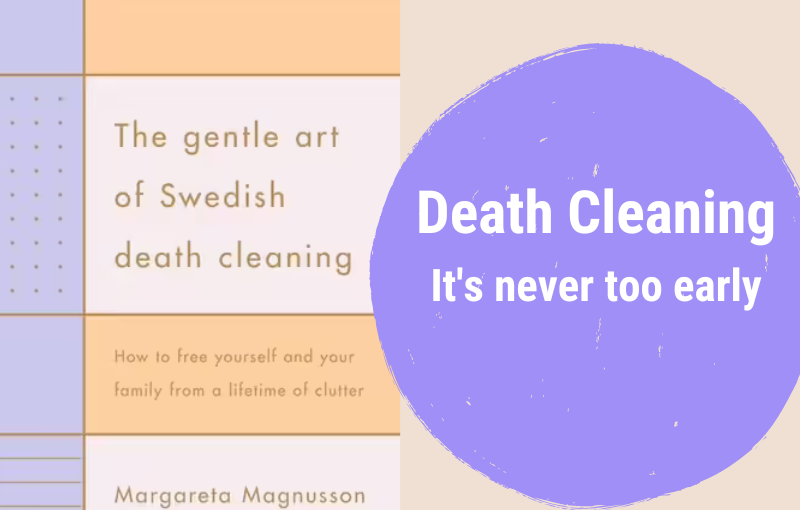Why we should prepare and keep easy-to-find instructions with our sentimental belongings
Some time ago, I wrote about Margareta Magnusson’s book ‘The Gentle Art of Swedish Death Cleaning‘ and about my personal experience with ‘death cleaning’ after my mother’s death.
Sorting through the belongings of a loved one is always tough and emotionally challenging.
My mother was very well organised and this made the unwanted decluttering task easier for us.
However, there was one category of my mother’s belongings that we struggled to make decisions about.
We found a collection of the letters my mother and my father had exchanged before they got married. And my mother hadn’t left any instructions or hints about what she expected us to do with the letters.
Had she kept the letters just for herself, so that she could read them again whenever she felt like doing so? Or had she wanted to share the letters with us, expecting us to read them now?
My sisters and I finally agreed on the assumption that she had kept the letters for herself, not for us, – and we burnt them.
But even today, I still feel not completely comfortable about it – because we’ll never know for sure whether this really was what she’d have wanted us to do.
My personal set of ‘Death Cleaning’ guidelines
Based on my theoretical (Margareta’s book) and practical (sorting my mother’s belongings) learning experiences, I now follow
My new personal organising rules:
-
- I take my yearly decluttering sessions even more seriously because I don’t want to burden someone else with clearing unnecessary clutter after my death.
- I keep permanently updated folders, one physical and one digital folder, that contain all our (my husband’s and mine) important documents and personal information.
- I have reduced the number of photos, sentimental items, and memorabilia. And I keep them all in two boxes. On top of these boxes, I placed a note: “Sentimental stuff, just important to me, you (whoever it is who has to sort out my stuff) can throw it away, without any feelings of regret or guilt”.
I think it is very human that most of us don’t like – and therefore try to avoid – considering the fact that our lives will end at some point in time.
However,
I do believe that we should feel responsible for the future and take care of our loved ones: We should make sure that they don’t have to ‘death clean’ for us.
I also believe that we should feel responsible for the present and take care of ourselves: Regularly sorting through our stuff can be hard work but consider the benefits for your life:
‘Death Cleaning’ (= Decluttering) can be a very intentional and productive experience:
-
- It’s an opportunity to learn about ourselves and our very personal values.
- It helps us to re-focus our attention and energy towards our future and our goals.
- It clears our space and our mind.

